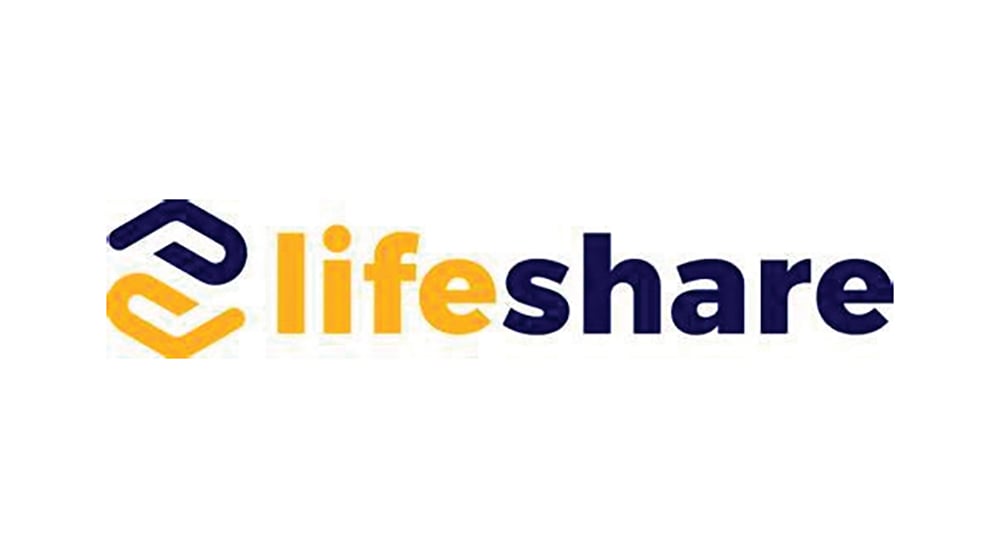
In a world where financial stability often hangs by a thread, LifeShare is transforming how families prepare for unforeseen tragedies. Co-founded by Ari Rosenstein and a business partner, this innovative program offers a proactive, community-based alternative to traditional life insurance, providing financial protection to families in their time of need.
Rosenstein’s journey to founding LifeShare began with a deeply personal realization. After making aliyah from Los Angeles and building a career in marketing and business management, a conversation with a friend — a database programmer — sparked a profound question. Why were so many families forced to rely on crowdfunding platforms like GoFundMe following the loss of a loved one? “It’s embarrassing, and these campaigns place stress on communities and their leaders,” Rosenstein recalled. “Why wait until someone dies to help? Let’s be proactive.”
This mindset led to the creation of LifeShare, a software-based platform that has grown into a nonprofit organization in the United States. One year after its launch, LifeShare already boasts 1,200 members and aims to reach 8,000 soon.
Life insurance is often touted as a vital financial safety net. However, many families either struggle to secure affordable policies or face obstacles due to age or health conditions. “Asthma, diabetes or simply being older can make traditional life insurance unattainable or too expensive for many,” Rosenstein explained. “Every family deserves financial security. If you can’t get life insurance, LifeShare is a viable alternative.”
LifeShare functions as a peer-funded financial safety net, where members contribute only when there is a death within the community. With an annual $40 membership fee, members are protected by the collective commitment of their peers. In the event of a death, members pay $32 to support the grieving family. Currently, the maximum payout is based on community size, with the eventual goal of providing up to $250,000 (8,000 members with each paying $32).
Rosenstein emphasized the simplicity and affordability of the program. “Approval is fast and easy. Minor health issues like high cholesterol or asthma are fine, and the only other requirement is a commitment to support your fellow members.” People with life-threatening illnesses are not eligible.
Unlike traditional insurance companies, LifeShare does not guarantee payouts but operates on a mutual aid model. “This isn’t chesed; it’s an investment in your future,” Rosenstein said. “We’ve designed LifeShare to be sustainable, cost-effective, and community-driven.” The program caps eligibility at age 65, aligning with its mission to support young families with dependent children. Actuarial analysis estimates one death per 1,000 members annually, meaning contributions would rarely exceed $384 per year, even at full capacity.
LifeShare’s mission has resonated globally, with Rosenstein visiting 50-60 communities worldwide to introduce the program. Organizations like Lema’an Achai have partnered with LifeShare to extend its benefits. Rabbi Avraham Leventhal, executive director of Lema’an Achai, praised the initiative: “The loss of a breadwinner is one of the most heartbreaking situations a family can face. LifeShare provides protection for ourselves and others. That’s why I am so enthusiastic about its mission.”
LifeShare’s peer-to-peer model fosters a spirit of collective responsibility. Members appreciate the dual benefits of safeguarding their families while supporting others in need. “It’s about prevention and mutual aid,” Rosenstein said. “When tragedy strikes, our members can focus on healing, knowing the community is there for them.” Rosenstein’s lack of entrepreneurial experience posed initial challenges, but his passion and commitment helped him build a thriving program. “I knew nothing about startups,” he admitted. “But the vision of helping families kept me going.”
With ambitious plans for growth, LifeShare aims to create a global network of mutual support. Its success has already inspired other community-based initiatives. “We also work with organizations to enroll their members, expanding our reach and impact,” Rosenstein shared.
LifeShare represents a paradigm shift in how families address financial insecurity. By prioritizing collective responsibility over corporate profit, it offers a compassionate, accessible solution for families worldwide. As Rosenstein reflected, “LifeShare allows families to safeguard their loved ones while supporting the community. Together, we can ensure that no family faces tragedy alone.”
For more information, visit joinlifeshare.com.
Seth Namiard is a contributor to The Jewish Link.







